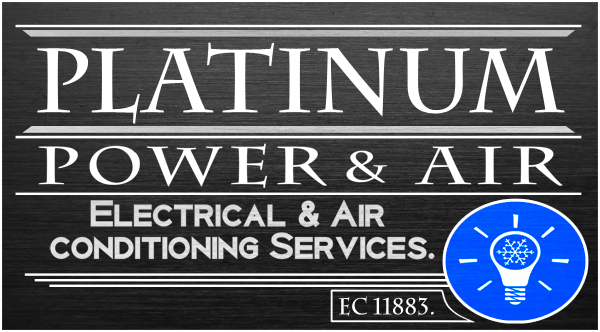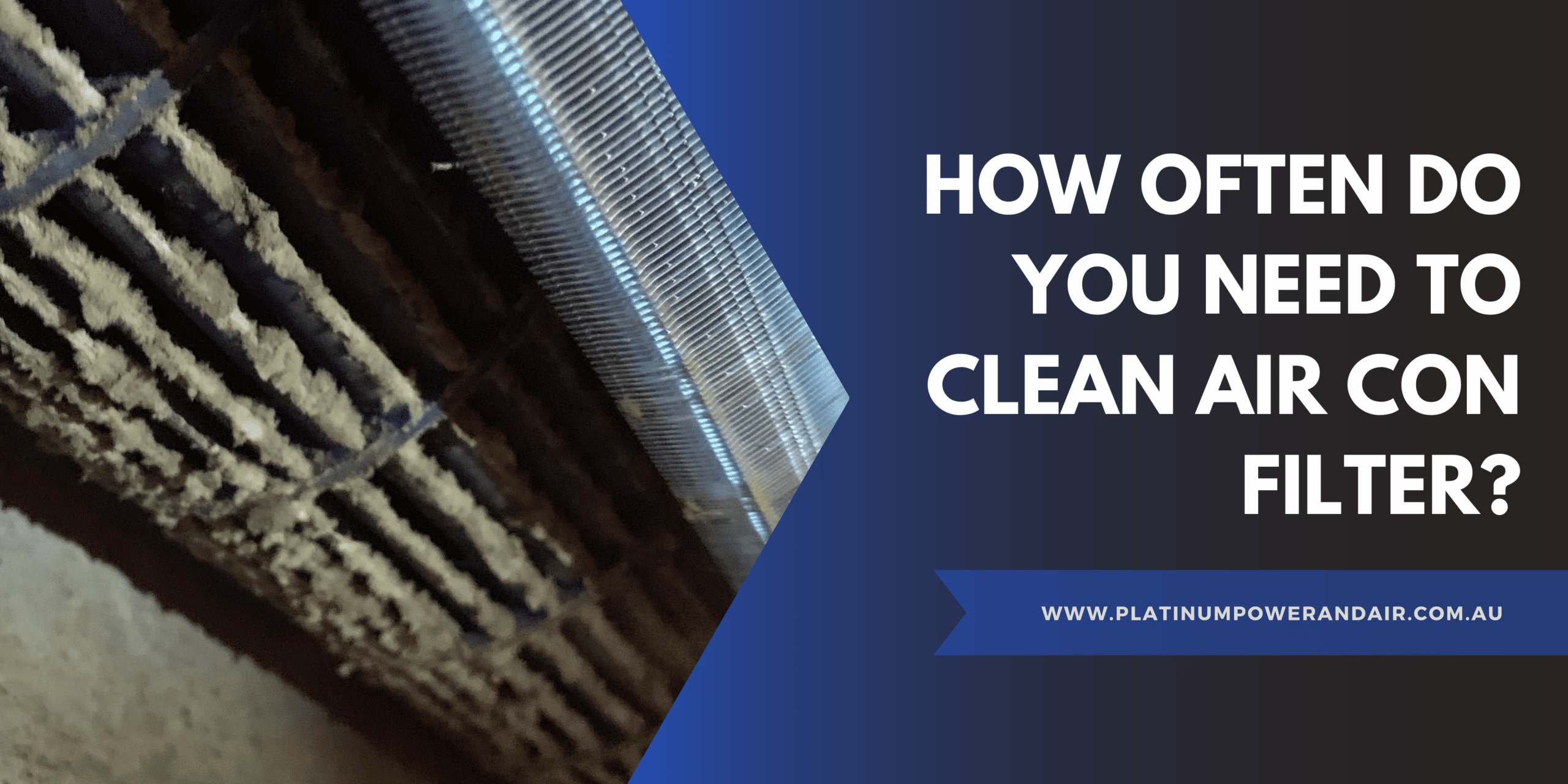Air conditioner air filters serve an important role in collecting dust, bacteria and airborne particles and preventing them from circulating through your home. Naturally, these filters don’t last forever and need to be cleaned or replaced to maintain your system, but how often do you have to clean them?
The frequency at which you clean your air-con filters will depend on several factors. If you have pets or allergies or live in a heavily polluted area, you will need to clean or change the filters every 2-4 weeks. If you don’t use the air conditioning often, you can do it as infrequently as every six months.
The types of filters you use will also impact the frequency you clean or replace them. If you use cheaper filters, they will need to be cleaned or replaced more often. Not doing so will affect the performance of the unit, requiring more frequent air conditioner maintenance services.
Before cleaning the unit’s filters, you should check the manufacturer’s instructions and follow the steps carefully to prevent any damage. When removing the filters from the unit, you should avoid bending the fins. If you have a large air conditioning unit, then it’s worth considering cleaning the condenser coils. You can use a vacuum cleaner with a soft bristle brush attachment to clean the coils.
Why is Cleaning Air Conditioner Filters Important?
Cleaning air conditioner filters keeps your system running efficiently and improves indoor air quality. Whenever you turn your air conditioner on, it accumulates dust and bacteria into the environment. If your filters aren’t clean, that dirty air is circulating through your home and could cause you to become sick.
The air you breathe in will be much better when you have clean filters, which is crucial for everyone, even more so if you have existing health conditions such as asthma or allergies.
Aside from improving your health, regularly cleaning your air conditioner filters will ensure that it runs more efficiently, reducing your energy bills. Air conditioning units can cost thousands of dollars to install, and regular cleaning of the filters will prevent more significant and costly problems from occurring.
Most air conditioner manufacturers and repairers recommend a regular service at least once or twice a year to keep it running at its optimal performance.
How Often Do You Need to Clean Air Conditioner Filters?
On average, it would be best if you cleaned your air filters once a month. This helps to keep your system running efficiently and the air in your home clean. Cleaning your filters less frequently will affect your family’s health and the unit’s efficiency.
Regardless of the age of your air conditioning unit, manufacturers recommend cleaning your air conditioner’s filters every couple of weeks, but it will depend on what the instructions say. If there is a lot of dust or pollution in the environment, you should clean them more frequently.
To keep your air conditioner running smoothly, you must regularly clean the filters. If the filters are blocked or dirty, your air conditioning unit will not operate as efficiently as it should, and your energy consumption could easily increase by 15%.
What Affects How Often You Need to Clean Air Conditioner Filters?
The factors that affect how often you need to clean your air conditioner filter include the following:
- How Often Your Air Conditioner Is Used – If you use your AC unit frequently, you will need to clean the filters at least once a month because dirt will have built up.
- Whether You Have Pets – Owning pets means you will need to clean your filters more frequently because fur can get caught in the filters and cause a build-up of dust and grime.
- How Large the Building Is – Air conditioners in large buildings need to work harder, however, the same is true of buildings with small air conditioner units.
- Allergies or Asthma – A dirty filter can cause allergies or asthma to get worse, so it’s imperative that you clean the filters regularly to prevent these from flaring up.
- Air Filter Quality – Poor quality air conditioner filters will need to be cleaned more frequently. A poor-quality filter simply won’t last as long. Some types of filters (like pleated for example) are generally better due to their strength and won’t need to be cleaned as often.
- Air Pollution in Your Area – If there is a lot of pollution in your area, your filter will collect more dirt and need to be cleaned at more regular intervals because dust and grime will build up faster.
How Can You Tell if Your Air Conditioner Filter Needs to Be Cleaned?
There are many signs that your air conditioner filter needs to be cleaned. This section will go into further detail about the top signs the filter is due for a cleaning.
- High Energy Bills – Dirty air conditioner filters mean that your unit will need to work harder to regulate the air, causing higher bills.
- Respiratory Issues Like Coughing and Wheezing – Air conditioner filters collect dirt, so they need to be cleaned periodically, or you may experience a flare-up in your allergies.
- Ineffective Cooling – If the unit isn’t cooling properly, it could be a sign that the filters are due to be cleaned.
- Dust and Dirt Around Vents – A build-up of dust is a major sign that the filters need to be cleaned.
- Musty or Dank Smells – If you notice a smell coming from the unit or the air in general it’s a sign that there’s a build-up of dust and moisture.
- Hot Air Coming from the Unit – A dirty AC filter will prevent the coolant from working correctly, so you could notice hot air coming from the unit – a sign it needs to be cleaned.
How to Clean Air Conditioner Filters
Here is a step-by-step guide on how to clean air conditioner filters so the unit will perform to its optimum capacity.
How to Clean Split System Aircon Filters
Follow these steps to clean split system air conditioner filters:
- Check the instructions manual. If you do not have the manual, head onto the manufacturer’s website and see if it is available there.
- Remove the dust filters and shake them to remove excess dust. You can also vacuum them or use the vacuum cleaner’s dusting brush head.
- If the filters are very dirty, wash them in warm water with mild detergent and rinse them until they are clean.
- Dry the filters before putting them back in the unit.
- If the filters are damaged, replace them but first, check the manufacturer’s website for the recommended type.
How to Clean Ducted Aircon Filters
Follow these steps to clean ducted air conditioner filters:
- Ensure it is safe to access the air conditioning unit and that you can place a ladder on a stable, flat surface before climbing onto it.
- Carefully remove the screw or the latch on the ducted aircon filter.
- Be careful when sliding the ducted air conditioner filter out of its position.
- If you can, take the filter outside and hose it under running water. If you can’t take it outside, a kitchen or laundry sink will be suitable.
- Remove the excess water and check that it is completely dry.
- Reinstall the ducted aircon filter, paying specific attention to whether or not it sits in the guides correctly.
- Close the filter and secure the latches.
What are the Different Types of Air Conditioner Filters?
HEPA filters offer the best protection against dirt and dust. Reusable filters are quite simple to use and can easily be cleaned and re-inserted into your air conditioner. Fibreglass filters are disposable and the cheapest filter available. There are aso pleated filters which are made from cotton.
Disposable Filters
There are various types of disposable filters. Disposable Fibreglass HVAC Air Filters are flat panel filters containing fibreglass mesh stretched over a cardboard frame. The mesh catches any dirt and grime that is circulated in the air. Due to their price, these are the most popular type of filter, but they need to be replaced regularly.
Pleated air filters can only be used once. Although similar to fibreglass filters, they are made from thick layers of cotton or plastic fibres. The layers are pleated, so there is a larger surface to capture dirt and grime.
HEPA
High-Efficiency Particulate Air filters are the most effective filters on the market. They can remove 99.97% of dirt and grime from the air. These filters are generally used in hospitals or laboratories where it’s important to have the cleanest possible air circulating.
Cleanable Filters
You can wash and reuse a cleanable air filter. Washable Mechanical HVAC Air Filters can be washed with water or simply vacuumed to eliminate any build-up of dust and grime. These filters are generally made from woven polypropylene and are electrostatically charged so they can catch more particles in the air.
Washable air filters are better for the environment than disposable filters but also cost more. Just like disposable air filters, they need to be replaced every three to six months to ensure that the AC unit works as effectively as it can.
Related Questions
Can You Run an Air Conditioner Without a Filter?
Although you can run your AC unit without a filter, it is not advisable. In many cases, it is worse than using a dirty filter. Running your AC without a filter can lead to higher bills, a damaged compressor, poorer air quality, frozen evaporator coils and a higher build-up of dirt in your home.
When Do You Need to Replace Air Conditioner Filters?
You should change your AC filter once every 3-6 months or monthly if you’re using cheaper filters, as they may not work as well. The air filter quality, people in your home, indoor air quality, whether you have pets, and the size of your house will determine how often you need to clean the filters.
Even if you don’t replace them at this frequency, it’s recommended that you clean them once a month to ensure that your home always has clean air circulated through it.
Disclaimer:
This article is published in good faith and for general informational purposes only. It does not constitute an estimate or quote for any specific service. Platinum Power & Air does not make any warranties about the ongoing completeness, reliability and accuracy of this information. This article is not intended to replace consultation with a licensed technician.

